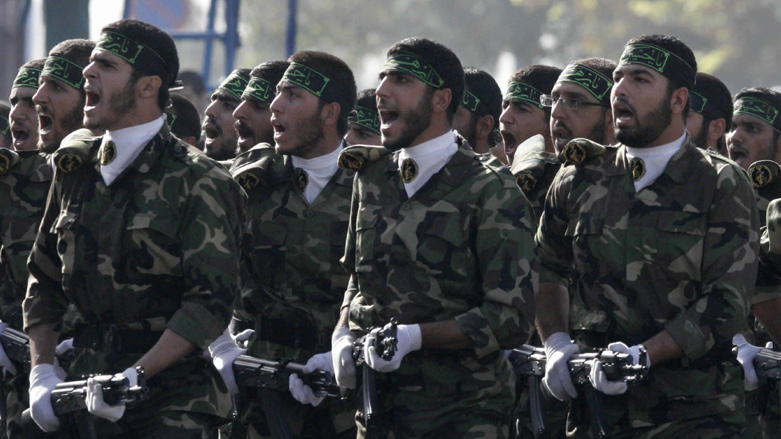US sanctions Iranian Basij, along with supporting banks and companies
The US Treasury Department announced new sanctions against Iran on Tuesday, which it detailed in an extensive report on the Basij, a paramilitary under the command of the IRGC’s Quds Force.

WASHINGTON DC (Kurdistan 24) – The US Treasury Department announced new sanctions against Iran on Tuesday, which it detailed in an extensive report on the Basij, a paramilitary under the command of the Islamic Revolutionary Guard Corps’ Quds Force (IRGC-QF.)
“Among other malign activities, the IRGC’s Basij militia recruits, trains, and deploys child soldiers to fight in IRGC-fueled conflicts across the region,” the Treasury report explains.

The Basij were first established by Ayatollah Ruhollah Khomeini in the anarchic period that followed the February 1979 overthrow of the Shah of Iran. That included the “students” who seized the US embassy, holding the diplomats hostage and radicalizing the political environment through confrontation with the US.
In the spring of 1980, Khomeini established the Basij, mobilizing the country’s poor and disposed behind him. After Iraq attacked Iran in September, the Basij—poorly armed and trained, but promised heaven—were used by Iran’s new leaders, essentially, as cannon fodder.
The Basij later served as an internal security force. Since early 2015, however, they have also taken up their older mission as a fighting force: given some combat training, they are deployed to Syria to fight on behalf of Tehran’s close ally in Damascus.
Just as many of the Iranian Basij sent to Syria are children, Tehran also exploits the children of other nationalities, which it has mobilized into Basij units.
There are nearly one million Afghan refugees in Iran, and they, too, are recruited to fight in Syria, “including children as young as 14-years-old.”
Enlistment is supposed to be voluntary, but some Afghan recruits forced to fight for Bashar al-Assad “chose instead to flee to Europe,” the Treasury report states.
The recruitment plays on Shia symbols and sentiments. The Afghan unit within the Basij is known the Fatemiyoun Brigade, the Pakistani unit as the Zainabiyoun Brigade.
The activities of the Basij are financed by the Bonyad Taavon Basij, or Basij Cooperative Foundation, “comprised of at least 20 corporations and financial institutions,” according to the Treasury report.

It is those entities that the US sanctioned on Tuesday. They include the Mehr Eqtesad Bank, as well as Bank Mellat, one of Iran’s largest commercial banks, with branches in 11 countries, including Britain, France, and Russia, as well as, in the Middle East: Iraq, Turkey, and the UAE.
The sanctioned entities include major businesses that generate “millions of dollars for the Basij,” including the Iran Tractor Manufacturing Company, which is the largest tractor manufacturer in the Middle East and North Africa.
Although established in 1968, long before the Iranian revolution, it is now owned by an investment company linked to the Basij.
The largest steelmaker in the Middle East and North Africa—Esfehan’s Mobarakeh Steel Company—also provides revenues for the Basij.
The Mobarakeh Steel Company owns the winning Iranian football club, Sepahan, which qualified to play in the 2007 FIFA Club World Cup. The steel company, too, has been placed on the US sanctions list.
The Basij are also involved in “Iran’s mining of zinc, lead, and other minerals,” and those companies, including Iran’s Zinc Mines Development Company, Bandar Abbas Zinc Production, and others, have been sanctioned as well.
Any individuals or companies that do business with these designated Iranian entities will be subject to secondary US sanctions, as a result of the Treasury Department’s action.
On November 5, yet another round of US sanctions, targeting Iran’s oil and financial sectors, will come into effect.
Editing by Nadia Riva
